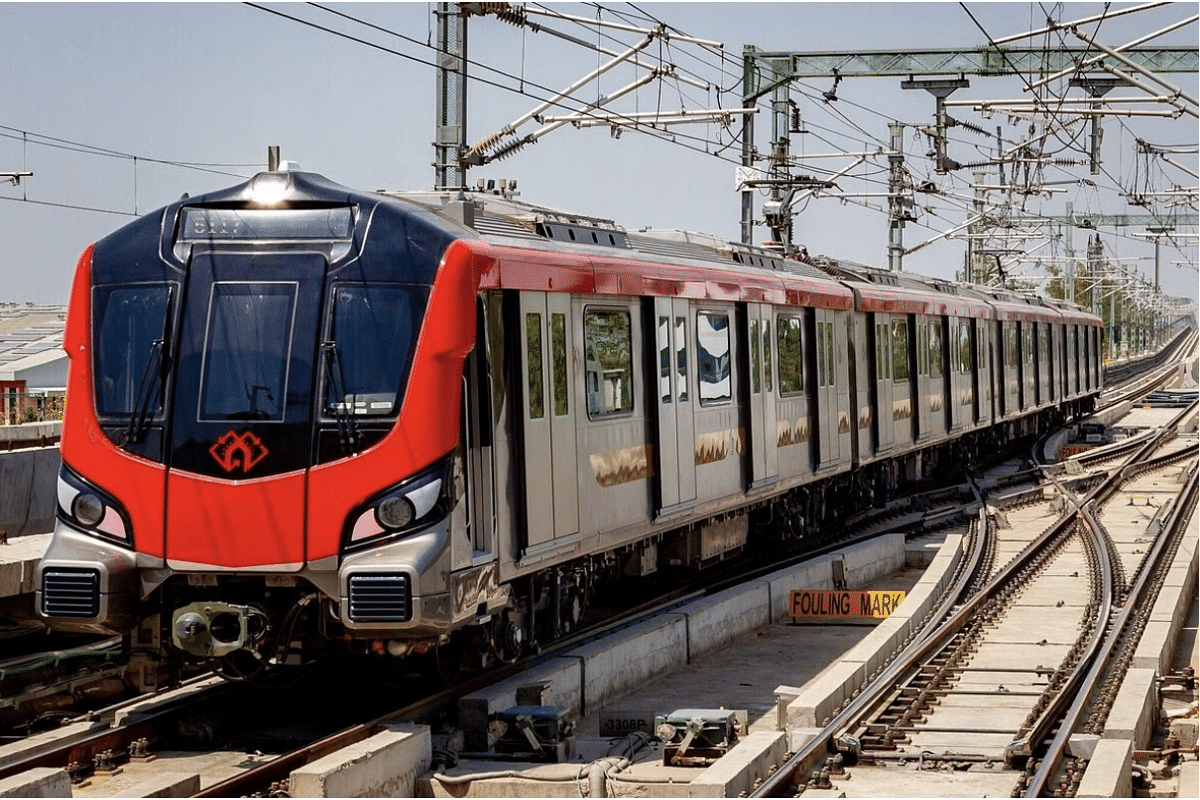Infrastructure
Uttar Pradesh Cabinet Gives Nod To Lucknow Metro's Second Corridor, 11-Km Stretch To Improve Access To Old City

Lucknow Metro.
In a significant move to enhance city infrastructure, the Uttar Pradesh cabinet, led by Chief Minister Yogi Adityanath, has given the green light for the second phase of the Lucknow Metro project.
Spanning 11.165 kilometres from Charbagh to Vasant Kunj, the second phase, known as East-West corridor, will feature 12 stations, seven of them underground and five elevated ones.
It's worth noting that Chief Minister Yogi Adityanath approved the construction of the East-West Corridor on 2 January of this year. Following this, the Uttar Pradesh Metro Rail Corporation (UPMRC) initiated the process to submit the detailed project report (DPR) of the second corridor to the cabinet for approval.
Currently, UPMRC operates metro services on the 22.88-kilometer-long North-South Corridor from Munshi Pulia to Amausi airport, comprising 22 stations along the route. The Charbagh-Vasant Kunj route will mark the city's second corridor.
The first corridor of the Lucknow Metro Rail was commissioned 36 days before the deadline, a rare feat in completing the projects in the urban transport infrastructure sector, thereby avoiding any cost overrun.
In 2022, the Delhi Metro Rail Corporation (DMRC) had submitted the revised DPR for the Charbagh-Vasant Kunj corridor.
As per the DPR, the underground track from Charbagh to Nawaj Ganj will be 6.879-kilometre long, encompassing seven underground stations — Charbagh, Gautam Buddha Nagar, Aminabad, Pandey Ganj, City Railway Station, KGMU Crossing, and Nawaj Ganj.
The stretch from Nawaj Ganj will transition to an 4.286 kilometre elevated track till Vasant Kunj with elevated metro stations at Thakurganj, Balaganj, Sarfarazganj, Musa Bagh, and Vasant Kunj — where a metro depot will also be established.
With an estimated cost of Rs 5,880 crore, the proposed corridor is anticipated to be completed within a five-year timeframe.
Upon its completion, the East-West corridor is poised to provide relief to the densely populated areas of the Old City, while also boosting commuter traffic in the metro, thereby enhancing the potential for increased revenue generation.
Support Swarajya's 50 Ground Reports Project & Sponsor A Story
Every general election Swarajya does a 50 ground reports project.
Aimed only at serious readers and those who appreciate the nuances of political undercurrents, the project provides a sense of India's electoral landscape. As you know, these reports are produced after considerable investment of travel, time and effort on the ground.
This time too we've kicked off the project in style and have covered over 30 constituencies already. If you're someone who appreciates such work and have enjoyed our coverage please consider sponsoring a ground report for just Rs 2999 to Rs 19,999 - it goes a long way in helping us produce more quality reportage.
You can also back this project by becoming a subscriber for as little as Rs 999 - so do click on this links and choose a plan that suits you and back us.
Click below to contribute.
Latest